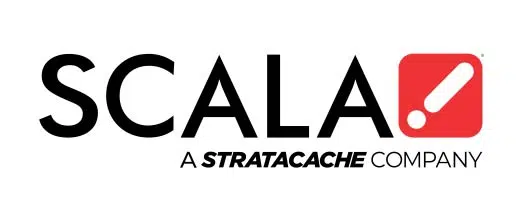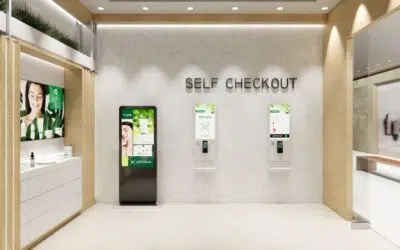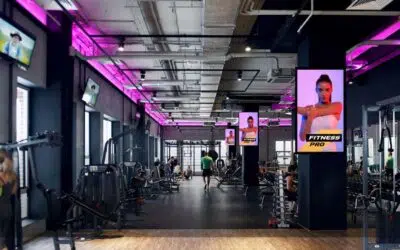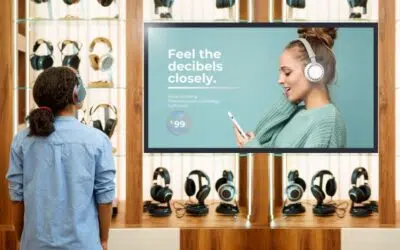4 Reasons to Include QR Codes on Your Digital Signage
by Scala Team
4 Reasons to Include QR Codes on Your Digital Signage
by Scala Team
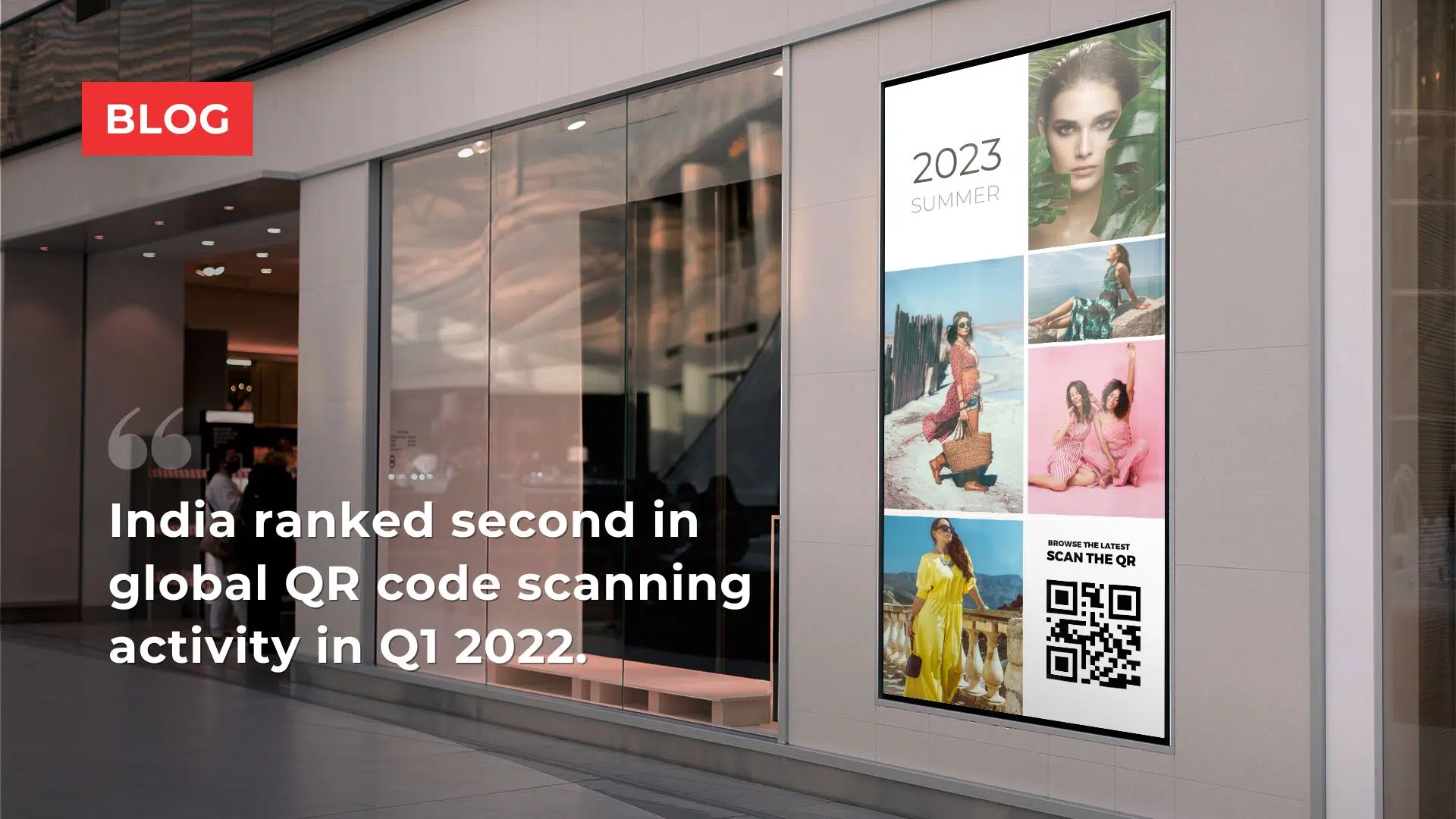
1. Enable Touchless Transactions
One of the most popular applications of QR codes is the ability to allow touchless transactions for customers. A key takeaway from the Adyen Retail Report highlighted that 6 out of 10 shoppers across Asia-Pacific are concerned about the hygiene of payment terminals and would opt for touchless transactions if given the choice.
People are more concerned about hygiene than ever before, with both customers and organisations sharing a common desire to eliminate the need for physical contact and reduce the spread of germs. Cue the re-birth of QR codes in allowing merchants to deliver a touchless transaction and shopping experience!
Use Case: The Food & Beverage Industry
Many restaurants and cafes have been using QR codes technology to enable touchless transactions for some time. But they have come in handy in other ways too, helping restaurants manage queues and wait times effectively. Imagine: instead of a long line where you can only view the menu at the counter before taking another couple of minutes to decide what you want to eat, customers now have access to a touchless QR menu which enables them to browse and make the payment for their order from their tables or even before they reach an eatery.
2. QR Codes are easily integrated with Touchless Kiosks
Offer your customers a myriad of offerings such as product information, touchless catalogues, and promotions through a QR code that is integrated with your existing touchless kiosks. Companies that have integrated QR codes alongside their loyalty programs have seen revenue grow by up to 250%, speaking volumes about the usefulness of QR codes.
Use case: The Retail Industry
No one likes the feeling of being upsold, or like they are obligated to make an add-on purchase. However, the one thing that a lot of shoppers have in common is wanting to feel in control of their shopping experience.
A QR code at a touchless kiosk can enable customers to redeem or earn loyalty points, direct them to limited-time offers on a brand’s product page, offer a discount code by becoming a member and even promote company-wide CSR initiatives by prompting donations – all while allowing them to shop at a pace that is comfortable for them.
3. Increase your Customer Engagement
Having a stellar product or service is a great start, but what matters is keeping customers engaged enough to prompt a sale.
Whether it’s access to product reviews from fellow customers or viewing detailed product descriptions, the gap of information that may not be easily conveyed by in-store advertising or sales representatives can now be bridged through a QR code. With customer engagement being directly tied to conversions and even have a 20-40% impact on sales, there is a wealth of opportunity for brands to see results from adopting QR codes into their sales strategy.
Use case: The Retail Industry
Brands can place QR codes on digital signage displays, directing customers to more information about a product such as a side-by-side comparison, reviews, videos and more.
4. Gather useful data and streamline processes
While we’ve been looking at how QR codes can do wonders for a company’s sales, it also has the power to gather valuable data that may help reduce inefficiencies and enhance your audience’s experiences. Companies have shifted away from pen and paper forms and are now looking at incentivising feedback through the use of QR codes, which gives them better insight into how they can improve their product or service offering.
Use case: The Healthcare Industry
QR codes have enabled the healthcare industry to streamline patient registration and crowd management. Contactless check-in has become more common in healthcare settings, essentially allowing patients to scan a code and fill out any forms without queuing or sharing surfaces.
Healthcare facilities are also exploring the use of QR codes with appointment reminders and feedback collection. Patients can now fish out their smartphone cameras and with a quick scan, they can receive automated appointment reminders via their email or phone or even submit feedback through surveys.
Scala Leads the Way in Digital Signage
Scala is a world-leading provider of tailored digital signage solutions, offering a wide range of possibilities with features such as interactive technology, virtual and augmented reality, and predictive analytics. With a focus on leveraging smart marketing technology and digital signage, Scala is partnering with top brands throughout the Asia-Pacific region to drive digital progress in multiple industries.
Find out more about Scala’s digital signage solutions and transform your marketing strategy today.
About the Author:
Scala digital signage experts share their experience and thoughts in our blog to provide practical tips and advice for real-world applications. Our team aims to offer interesting content through a variety of formats including long form articles, video logs, interviews and infographics.
